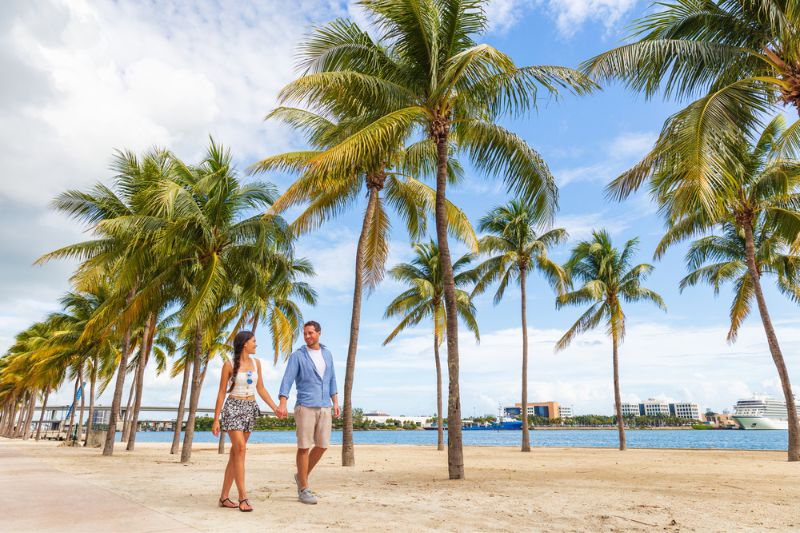4 Secrets to Planning the Perfect Luxury Coastal Vacation
How to Plan the Perfect Luxury Coastal Vacation

The world’s many breathtaking beaches offer the perfect setting for a refreshing and scenic getaway—whether you’re planning a world-class honeymoon, marking a milestone, looking for a summer of family fun, or seeking a life-changing experience, a luxury coastal vacation is the best option for you.
When planning your luxury coastal vacation, taking time at the start to define the purpose of the trip, think about your preferred climate, identify any special events you’d like to see, and decide how much to invest will ensure the time away is as magical as you could possibly dream.
Essential Question 1: What Are You Trying to Achieve?
People travel for a host of different reasons, and deciding on a purpose for your trip upfront will help you plan a coastal getaway that’s immensely satisfying and includes everything you need it to—and nothing that you don’t.
As you peruse destinations, dates, accommodations, travel packages, and transportation, and start thinking about a budget (however large), keeping the purpose of the trip front and center will help the rest of the decisions flow.
Purpose 1: Relax and Refresh
People have gone on coastal vacations—the iconic “beach holiday”—since they were able to afford them. And for good reason: Coastal vacations offer sun, sand, warmth, beautiful views, the therapeutic lapping of waves against the shoreline, and plenty of opportunities for recreational activity.
If your primary goal is to get some R&R, consider:
- A stay at a luxury wellness retreat located on an island or close to the coast
- Renting an apartment in a coastal condominium or resort where you can relax in the company of others
- Renting a private villa or beach cottage with wellness services and a private chef
Purpose 2: Strengthen Relationships
A coastal vacation with loved ones can be a great way to strengthen relationships, especially if your day-to-day program doesn’t leave much space for quality time with your significant other and kids.
To create a space for family bonding and memory-making, consider:
- Renting a villa or beach house with equipment for surfing, snorkeling, sandcastle-building, and other beach activities
- Staying at a family-friendly waterfront resort with a swimming pool and children’s activities
- Staying at an amusement park like Walt Disney World Resort in Miami, Florida that’s within driving distance of a beautiful beach
For a honeymoon or romantic getaway, consider renting a private beach villa with a hot tub, room service, and access to your own private stretch of sand, or renting a cozy cottage that’s within walking distance of world-class restaurants and upscale coastal brunch cafés.
Purpose 3: Tick an Item Off Your Bucket List
If you’ve got a specific landmark in mind, the site of your luxury coastal vacation might have already been decided. However, if you’re still looking for inspiration, consider any of these top coastal bucket-list destinations:
- Scuba diving in the Caribbean
- Surfing monster waves in Hawaii
- Cruising or sailing around the postcard-perfect Greek islands
- Snorkeling in the Great Barrier Reef
- Sipping on mojitos in Cancún
- Viewing the Northern Lights from the Northern Territories of Canada
Purpose 4: Stretch Your Comfort Zone
Sometimes, luxury coastal vacations have a higher purpose: to challenge yourself, push your limits, and try something new. If getting out of your comfort zone is your goal, try:
- Taking a coastal scuba diving course
- Learning how to sail or stand-up paddleboard
- Volunteering at a coastal wildlife sanctuary
- Joining a coastal marathon or triathlon
Essential Question 2: What’s Your Ideal Climate?
Once you’ve settled on a central purpose for your luxury coastal vacation, deciding on your ideal climate will help you determine the exact location and the best time of year for travel. In addition to the climate, think about whether you’d like a more low-profile vacation with few other people around (i.e. traveling in the low season or shoulder seasons) or whether you want to go during the peak tourist season for the widest range of activities and tours.
- Summer – This is the best time to visit beaches in the northernmost parts of the Northern Hemisphere (June to September)—like Seattle, Washington—and in the southernmost parts of the Southern Hemisphere (December to February)—like the South Island of New Zealand—when temperatures aren’t too cold.
- Winter – This is the best time to visit destinations that experience extreme heat or hurricanes in summer, like the southern U.S. states, Mexico, and the Caribbean (go between December and April), and destinations in the Southern Hemisphere including Southeast Asia, northern Australia, and Africa (travel from June to September).
- Early spring and late fall – There are great seasons for travel in general because you’ll usually avoid the summer and winter extremes and the peak times for natural disasters (floods, hurricanes, forest fires, etc.). You’ll also avoid the busiest times for tourists on summer vacation in both hemispheres.
In some cases, the choice of when to go will be pre-determined by the dates of a certain cultural event, animal breeding season, festival, retreat, or conference that you want to attend. If so, be sure to book your flights and accommodation well ahead of time to secure the best deals and the most comfortable lodgings.
Essential Question 3: What Would You Like to See and Do?
This question affects not only your choice of destination and the timing of the trip, but also your choice of accommodation, as different hotels, resorts, and tourism providers offer different selections of activities.
Consider which of the following is more important to you:
- Land-based nature activities: bird-watching, hiking, cycling, zip-lining, horse riding, caving, and landscape or animal photography
- Water-based nature activities: canoeing, kayaking, parasailing, sailing, stand-up paddleboarding, snorkeling, scuba diving, and swimming
- Animal parks: aquariums, safaris, and zoos
- Cultural sites: museums, galleries, historical sites, monuments, city tours, festivals, and local markets
- Dining opportunities: restaurants, sidewalk cafes, pubs, bars, and local cuisine
- Shopping opportunities: markets, shopping strips, and malls
- Entertainment opportunities: theme parks, amusement parks, theaters, circuses, cinemas, casinos, and expos
At some destinations, you’ll have a wide selection of activities from all of these categories. However, identifying your top priorities will help you narrow down the list so that you’re focusing on the destinations that are best suited to your preferences and goals.
Essential Question 4: How Much Do You Want to Spend?
This is where the rubber hits the road. According to research published on HospitalityNet.org, luxury travelers spend an average of $5,365 per trip and take twice as many trips as average travelers for an annual total of over $30,000 spent on travel. Business Insider estimates the average cost of a life-changing trip for two people to be around $5,000 with trips to Everest costing upwards of $45,000.
When setting a budget—no matter how large that budget is—keeping the following factors in mind will help you craft your dream vacation within the budget you set:
- Distance from your home. Destinations that are closer to home—like the Gulf Coast or Gulf Shores, Fl, Orange Beach, Perdido Key, Pensacola, or the Caribbean for U.S. citizens, will cost less to visit than destinations located on the other side of the world.
- Length of stay. Longer stays cost more than shorter stays, once accommodation costs are accounted for.
- Private vs public transportation. Private transportation options (private chauffeurs, taxis, charter boats, and charter flights) cost more than taking public transportation or getting around by foot.
- Type of accommodation. Renting a private villa or apartment in a resort invariably costs more than staying at a youth hostel or camping (glamping is always an option, too).
- Amenities. You’ll pay more if you want the finest selection of amenities, including a private concierge, room service, laundry service, private chef, tennis courts, swimming pools, fitness facilities, spa services, onsite vehicle rentals (mokes, quad bikes, etc.), panoramic views, and private tours.
Decide on a Destination or Package and Communicate Ahead
At this point, you’ve probably narrowed down the list to the top few luxury vacation rentals, condos, or experiences. To settle on your final choice, read independent online reviews, see which accommodation provider has the best selection of amenities, and head to their website to book your dream vacation.
After your accommodation is secured, remember to book your flights and on-the-ground tours, arrange any visas or other documentation you might need, and communicate ahead about any special requirements you have—including dietary requirements, accessibility requirements, and anything else the provider needs to know to ensure that you have a comfortable stay.
Bon Voyage!
Wherever you go for your luxury coastal vacation, you’re sure to have an amazing time taking in the wonders of nature and kicking back on white beaches with sapphire-blue water views. And after spending some time focusing on the purpose of your trip and finding the right location and activities to help you fulfill that goal, you can be sure that your time will be well spent.
The most important things to remember when planning your luxury coastal vacation are to prioritize, book far ahead to secure the best lodgings, and communicate any special requirements well in advance of your stay. Then, you can pack up your essentials and head off ready to enjoy your long-awaited vacation in paradise!











Leave a Reply